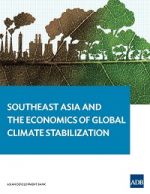Southeast Asia and the economics of global climate stabilization
 Climate change is a global concern of special relevance to Southeast Asia, a region that is both vulnerable to the effects of climate change and a rapidly increasing emitter of greenhouse gases (GHGs). This study focuses on five countries of Southeast Asia that collectively account for 90% of regional GHG emissions in recent years—Indonesia, Malaysia, the Philippines, Thailand, and Viet Nam. It applies two global dynamic economy–energy–environment models under an array of scenarios that reflect potential regimes for
regulating global GHG emissions through 2050. The modeling identifies the potential economic costs of climate inaction for the region, how the countries can most efficiently achieve GHG emission mitigation, and the consequences of mitigation, both in terms of benefits and costs. Drawing on the modeling results, the study analyzes climate-related policies and identifies how further action can be taken to ensure low-carbon growth.
Climate change is a global concern of special relevance to Southeast Asia, a region that is both vulnerable to the effects of climate change and a rapidly increasing emitter of greenhouse gases (GHGs). This study focuses on five countries of Southeast Asia that collectively account for 90% of regional GHG emissions in recent years—Indonesia, Malaysia, the Philippines, Thailand, and Viet Nam. It applies two global dynamic economy–energy–environment models under an array of scenarios that reflect potential regimes for
regulating global GHG emissions through 2050. The modeling identifies the potential economic costs of climate inaction for the region, how the countries can most efficiently achieve GHG emission mitigation, and the consequences of mitigation, both in terms of benefits and costs. Drawing on the modeling results, the study analyzes climate-related policies and identifies how further action can be taken to ensure low-carbon growth.
